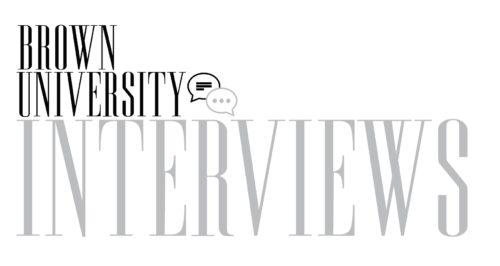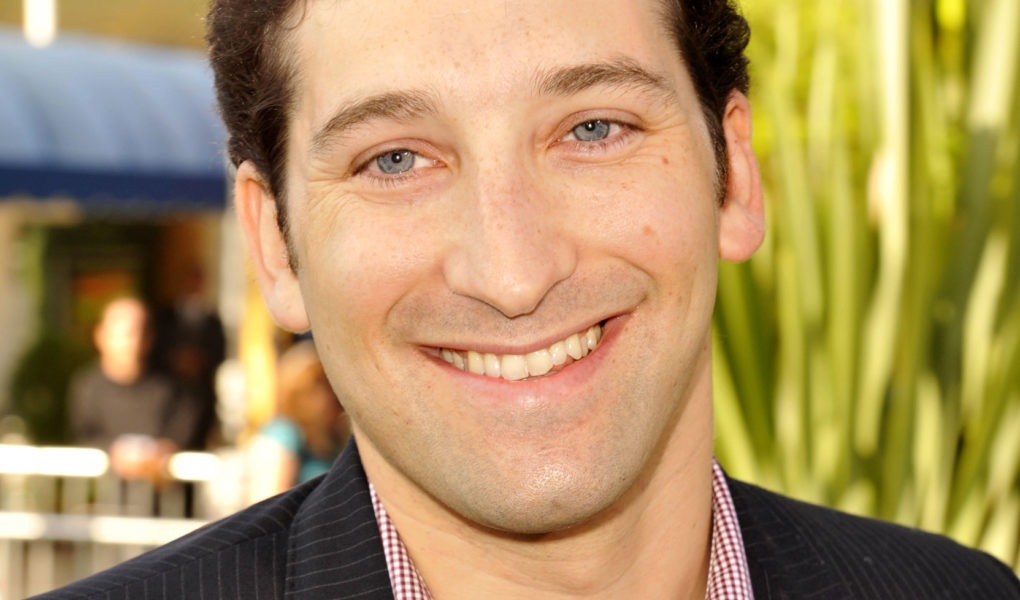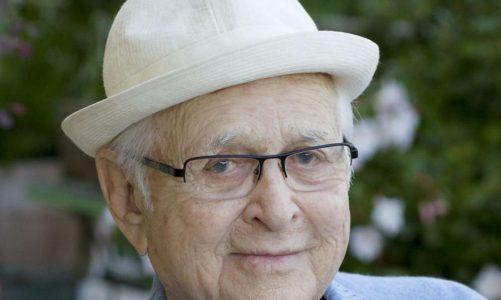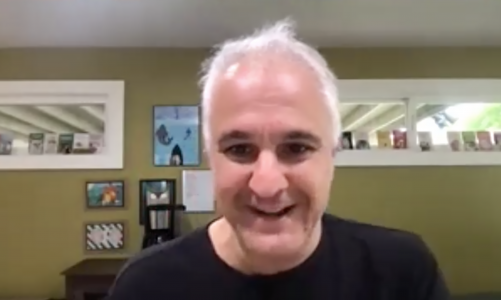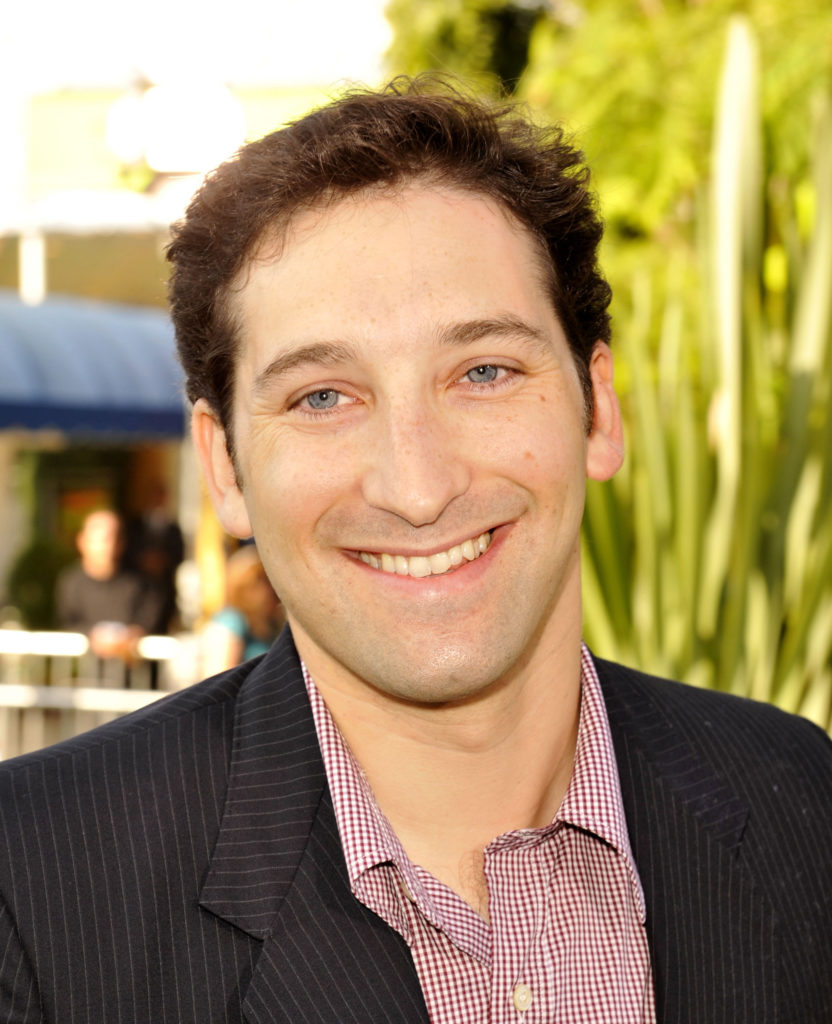
Etan Cohen is a writer, director, and producer of comedic film and television known for movies such as Get Hard starring Will Ferrell and Kevin Hart, Tropic Thunder starring Ben Stiller, Robert Downey Jr. Jack Black, and Tom Cruise et. al., and four seasons of King of the Hill, among many other projects. He got his start in 1995, writing for Mike Judge’s breakout hit cartoon Beavis and Butt-Head, while still attending Harvard College, where he also wrote for the Harvard Lampoon. He stayed at Beavis and Butt-Head until 1997, and in 2001 returned to another groundbreaking Mike Judge show, King of the Hill, where he wrote for four seasons. In 2005, he won an Annie Award for Best Writing in an Animated Television Production for the episode “Ceci N’est Pas Une.” In 2006, he and Mike Judge co-wrote feature film Idiocracy, a political satire that has since developed a cult following and been credited with accidentally accurately predicting many current events. He is a Modern Orthodox Jew, one of the few devoutly religious people working on the creative side in Hollywood. As the Los Angeles Times describes it, “Hard-R comedy by day, Talmud study by night…makes Cohen something of a double outsider.” At the time of this interview his upcoming projects included The Bad Guys, a computer-animated heist comedy based on the popular children’s book series by Aaron Blabey, and another Mike Judge led project, limited series A5, which follows the story of a bioengineer who discovers the gene that makes a person an asshole, and attempts to discover why they’ve come to dominate our culture. True to form, some asshole recently cancelled A5 before it made it to air, likely for fear of having their secrets exposed.
Amelia Spalter: So, you’re currently working on an animated children’s film, and an HBO show about assholes. You’re always either writing something that could be watched comfortably at a family reunion, or something that’s not even entirely comfortable to watch by yourself. Do you consciously avoid middle ground of any kind, or naturally gravitate towards extremes?
Etan Cohen: I’ve always been kind of omnivorous about the things I am interested in and I’m always just attracted to fun projects, no matter what genre they are. I was talking to another writer yesterday who said that doing family stuff is like trying to do comedy with one hand tied behind your back, because you don’t get to say any of the good stuff, but it’s also a fun challenge to find things that have some cultural resonance. I’m not saying we get there every time with everything, but, you know, you can find some actual comedy and character stuff within the family animation world. Animation is so fun, because you can do anything. For example, [one of the family friendly movies,] Rumble, is like WWE, except every city has a sports franchise that are monsters instead. Although, I will say that I handed that off to the director about a year ago, so I don’t yet know if my name will be on it. I did some of the early work in putting it together, but I don’t want to take credit for any of their work.
What I’m really sunk into now is this movie called The Bad Guys. I’ve sort of been there from the ground up. Aaron Blabey, who’s the author of [the books the film is based on,] created a really fun sandbox, and then we got to play in it with these great characters, taking them all over. And because it’s animation, we can take them anywhere. What was really interesting is we found that a book like The Bad Guys that wonders whether people can be redeemed and asks whether there are systemic things that keep people from being good guys, has suddenly become a part of the cultural conversation in a way that it might not have been a couple of years ago. A lot of Pixar movies do this well, they have some cultural relevance when they’re coming out. So, that was a nice surprise, to be able to have that conversation within a family movie. I think part of the problem, or, just one of the things people fall into, is that they condescend to kids when they’re making those movies. You have to remember how smart kids are and that they’re just as aware of corny jokes and clichés as an adult audience.
[Regardless of genre], doing anything well is a big challenge and very satisfying. Things like what you see in Get Hard have always made me laugh since I was a kid watching Benny Hill and stuff like that. I do look back and cringe at the fact that I watched them with my grandfather, but I always liked that kind of thing. I had a subscription to the Lampoon when I was in middle school, so I always enjoyed that kind of stuff too. And then my first job, my college job, was on Beavis and Butt-Head. So, I was always able to be very much in touch with my toxic masculinity, even from a young age. That’s served me well in Hollywood.
How do you explain the scope of your work to your kids when there’s a movie about socially conscious farm animals one minute and a movie with blowjobs from strangers in public bathrooms the next?
I haven’t let any of my kids watch Get Hard. Even though they’re actually in it for a second. But when they’ll tell me, “Oh, my friend watched it on a plane. He said it was really funny.” I’m just thinking, “Oh God, no. Do I talk to his parents?” They still haven’t seen Tropic Thunder, either. I was hesitant with Beavis and Butt-Head, too. I’ve just got to go back and watch, because maybe this stuff used to play for laughs, but I don’t think it plays the same way anymore. I hate to sound like a PC killjoy, but these things are just lensed in a different way now.
You made Idiocracy, a movie about a dystopian future in which humankind become so stupid that they are unable to steward functioning societies. Today people are re-watching it through a new lens, because much of the film’s satire is today’s breaking news. What fictional components of the movie are you most surprised to see becoming reality?
The things that most shock me are not the things that happened, but the things that exceeded what we predicted. I hadn’t watched Idiocracy in a while, and watching it cognizant of [present day politics], I just looked at President Camacho and realized that he is a much better president than President Trump. Because of his respect for science, his respect for expertise, his willingness to admit when he’s made a mistake or when he needs to ask others for help, that he was not threatened by [the movie’s protagonist] Joe Bauers, and let someone else have the spotlight. There are a lot of ways that Trump could learn from Camacho.
How did you manage to break into writing for one of the most disruptive shows in TV history while still in college?
I was on the Harvard Lampoon—a great place to meet your wife—and through the Lampoon I got a summer internship at MTV. It was a slave-labor internship, basically not getting paid to write jokes for one of their late-night shows that’s now ancient history. While I was there, a guy swung by and, in retrospect, I realized he was just there to hit on female interns, but his game was, “Hey, I write for Beavis and Butt-Head.” But they all called BS on him immediately, and I was the only one who fell for it. Me, in my kippah. And he said, “If any of you want to work, I can totally give you access to the show and everything.” I said yes. I think part of the key to success is just having no idea what you shouldn’t do. So, I just began cold calling. I didn’t know you don’t do that. I just called up the show and told them, “I’d like to write for you.”
I lucked into the fact that there was a very generous head writer there at the time, named Kris Brown, who is now one of my oldest friends. He actually took my calls, and basically said, “Ok, send me stuff.” And I, again, not knowing that this isn’t done, started just sending them stuff. I started sending hundreds of ideas. He told me later they were mostly just G-d awful. I went back to Yeshiva, so I was sending them from my grandparents’ place in Jerusalem and then waiting by the payphone to get their reactions, and what he finally told me was, “Okay, we like one of these ideas, so we’ll pay you like a hundred bucks and we’ll give it to one of our staff writers to write.” I think he could tell how incredibly disappointed I was, so he was very generous in saying like, “Look, if you want to write it on spec, I’ll give you a chance, and if it’s any good we’ll use it.” So that was the first thing I wrote.
Creative jobs like screenwriting are deeply rooted in the self, often requiring drawing on your own personal experiences and world views to create things with your own mind. Whereas religion, especially conservative practices, are typically the opposite, with a strong foundation in community. In your experience, does that mean creative work and conservative religious practice either repel or complement one another?
Initially, [writing] might have been more of a vent for things, you know what I mean? My real life was a certain religious construct, and [the things I was writing] were things I would never do or say in my real life. This was a way to do it in a fictional life. At the time, I also talked to a couple of rabbis who I respected. First of all, they told me that comedy was a value, and especially when it was true, it was a way to express certain things. And there is a tradition of sort of risqué satire in, like, Purim spiels, so it wasn’t completely outside of Jewish values. Showing certain things like nudity is problematic and promoting it might get more complicated. Then you find yourself in these really sticky situations. [In the scene you were just referencing from Get Hard,] I felt the tension. I know some people might laugh at talking about this in the context of Get Hard, but it is important to the scene you’re making. I’m sure people could quibble about how important that particular point was, but if you want it to be funny, you also want it to ring true. So, I think I always felt that tension. But I also felt like, if you’re doing what you hope is good work, or good work in whatever it means to you, they can sometimes have an intersection.
It’s always been a challenge. It’s more clear cut to say, “Can I please have kosher food on set,” because that’s very black and white. But then, when you’re doing some something creative, with fewer boundaries and fewer precedents, it becomes much grayer. What I would also say, too, is that there’s that old trope of “write what you know.” But know it or not, when you’re developing a story, when you’re trying to imagine how characters would react, how they would feel emotionally in different situations, there is no way you don’t bring yourself into that. So, I think from the opposite perspective; whether you like it or not, if religion is informing part of who you are, it’s going to appear, even in the subtext of whatever you write.
In a world where being unreachable even while sleeping is seen as somewhat lax, how did you attain such professional success so quickly while being inaccessible for a full twenty-four hours to observe Shabbat every week?
Well, first of all, I felt like I just had to work twice as hard as everybody else to sort of overcompensate for the fact that people might assume that I wouldn’t be available. And there are jobs that I lost because of Shabbat; I know that for a fact. I don’t want to name any of the people or projects, but there have also been times, like, a job that I was in the middle of working on that would be traveling through Yom-Kippur, and there was just no way for me to make it work. I can’t argue with the fact that sometimes production can’t work their way around it, but I always felt like I had to overcompensate for it. There are times when they were like, “Look, we’ve got to shoot this thing on Saturday.” And even though you’re usually extremely protective of your writing or something that’s got your name on it, I’d say, “Look, maybe I’ll try to walk over, but you need to do what you’ve got to do.”
In the beginning, I don’t know if you’re aware of the concepts of Kiddush Hashem (קידוש השם) or Hillul Hashem (חילול השם), but you’re often the only religious person that people know, so you’re very cognizant of wanting to set a good example, you know what I mean? So, I think that helps; not that we’re always successful. At the beginning, I would always be apologizing for being religious and then was surprised to see that people were interested in it and respected it. Only the Jews were offended by me. I think people assume you’re judging them or looking down on them, which you should never do, it’s none of your business. But as I worked in it more, I realized that people usually think it’s great or at least want to know more about it. I’ve had people I work with, cast members, come over for a Shabbat dinner. People love to learn about it, and I think it’s a wonderful way to spend a day. Part of it is just that you feel the obligation to work extra hard. Part of it is, at a certain point, that you realize there’s not a lot of things that can’t wait for a few hours.
*This interview has been edited for length and clarity.
